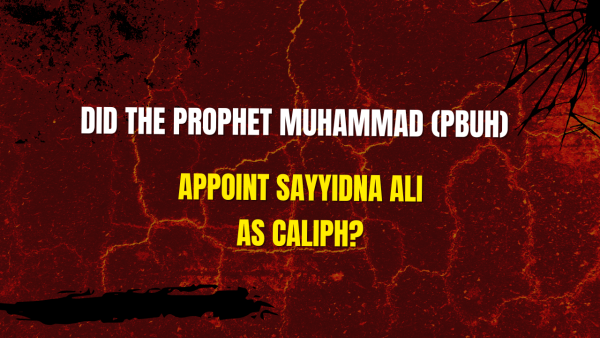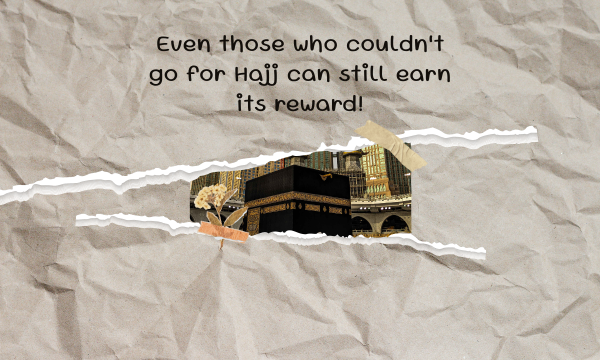Translated from a Lecture By Shaykh Usman Safdar
There are a certain hadith that mention the night of 15th Sha’ban, which is known as “Shab-e-Barat.” One such hadith is the following:
It was narrated from Abu Musa al-Ash’ari that the Messenger of Allah (peace and blessings of Allah be upon him) said: “Allah looks down on the night of the fifteenth of Sha’ban and forgives all his creation except a mushrik or one who harbors hatred against the Muslims.”
(Narrated by Ibn Majah, 1390)
Allah (SWT) does not forgive a mushrik because this is His principle as He has said:
إِنَّ اللَّهَ لَا يَغْفِرُ أَن يُشْرَكَ بِهِ
Indeed, Allah does not forgive association with Him.
[An-Nissa:48]
The mushrik is not forgiven until he does tawbah. Once he does, he is forgiven. The second person who is not forgiven is the ‘mushahid.’ What this means are the two people that harbor a grudge, jealousy or enmity against each other will not be forgiven. Allah Rab ul Alameen will not forgive in any case a person who keeps such feelings inside his heart.
In a hadith we learn:
Deeds are presented to Allah on every Monday and Thursday, and Allah will forgive every slave who does not associate anything with Allah in worship, except for a person who is at odds with his brother. He shall say: ‘Leave these two until they are reconciled.’”
[Sahih/Authentic] – [At-Tirmidhi – Muslim]
We learn that Allah Rabbul Alameen’s forgiveness is vast. So Allah Rabbul Alameen does forgive sins on the night of 15th Sha’baan. There is no denying to this. Although some scholars have considered the earlier mentioned hadith as a weak (da’eef) hadith. In fact the majority of the scholars consider this a weak a hadith. Yet, in my opinion and in the opinion of many other scholars of hadith, this narration is still at par to be acceptable. Hence, it is acceptable and it is a virtue of this night that Allah Rabbul Alameen forgives His servants on this night of 15th Sha’baan.
What is important is to know that this is not the importance of this night alone. This is the case for every Monday and for every Thursday that Allah (SWT) forgives. That does not mean in any way that we single out the nights of every Mondays or every Thursdays for worship. If we were to follow this hadith that Allah (SWT) forgives on this night, then the same case would have applied for every Monday and Thursday and it would have been made mandatory to worship every Monday and Thursday night. Yet, this is not the case.
Based on the above mentioned hadith, we can agree that this is the virtue of the night of 15th Sha’baan. What about worship?
Is it permissible to single this night out for acts of worship? For this the Prophet ﷺ did not single out this night for worship in his 23 years that 15th Sha’baan came in his lifetime as a Prophet. He ﷺ did not advise any of his wives, his companions nor his children of any specific form of worship on this particular night.
The question then which is frequently asked is, “What is the harm in doing acts of worship?” If there was no harm, then it would have been advised by the Prophet ﷺ. He ﷺ would have at least mentioned it and commanded to do so. He has not ordered us to do this.
There may be a person who does worship and offer the night prayer (tahajjud) every night, he may do so this night also. But if a person does not observe tahajjud every night and then singles this night for specific worship, what would we call this? This then falls under the category of biddat or innovation. He has singled out a specific day or night to do an act that he does not follow under normal circumstances, and this is impermissible. For example, if one states that since the day of Jum’uah is special so I will only observe tahajjud on the night of Friday alone. This is not allowed. In fact, our religion has spoken against this. It is stated in a hadith, the Prophet (ﷺ) has said,
‘None of you should fast on a Friday unless he fasts the day before or the day after.’
(Narrated by al-Bukhaari, 1849, Muslim, 1929)
Although Friday is a virtuous day, it is advised against fasting on Friday. So, if one wanted to could’ve been allowed to fast since the intention is to fast on any virtuous day mentioned. Now the Prophet ﷺ is fasting on a Thursday, yet neither is he fasting on a Friday himself nor allowing others to fast. The only permissibility is when it coincides with the white lunar days (ayyam al beed) of the month and a person is used to fasting these ayyam al beed. These are the 13th, 14th and 15th of every month in the Islamic calendar.
In the above hadith it is also explained that the permissibility is given only if the fast is observed one day before Friday or one day after it, only then the Friday fast becomes permissible.
The question does arise in our minds as to why the Prophet ﷺ has specifically commanded to abstain from this act. This has been made the principle for us. That it is not so that any day which is special is to be fasted upon or whichever night is mentioned as having virtuous qualities is to be spend in worship. This is not the principle of Shari’ah. Although the virtues and benefits of a Friday exist, yet it is not made permissible to single out its day or night for any other form of worship. This is why the Prophet ﷺ did not command it.
Hence, some scholars have mentioned the virtues of 15th Sha’baan while many have not mentioned it. To accept it does not implicate its day or night for worship.
Another act that is frequently observed in this night and many find evidence also for it is that people visit the graveyard. One such hadith that is presented as evidence is the following:
Aisha (R.A) described another occasion when the Prophet ﷺ left her on the bed and went to the graveyard to make dua for the deceased. The Prophet (S.A) then informed her that Jibraeel (A.S) came to him and informed him that his lord has ordered him to go to Baqee (the graveyard) and make dua of forgivness for the dwellers of the grave.
(Sahih Muslim, باب ما يقال عند دخول القبور و الدعاء)
In this narration of Sahih Muslim, there was no mention of this being on the 15th night of Shabaan.
Then how is it linked or derived that it was 15th Sha’baan and so that is why the Prophet ﷺ went to visit the graveyard. How is it connected to Sha’baan. In one of the narrations of this hadith it is mentioned that it was the middle of Sha’baan. Now, the hadith that makes mention of the 15th Sha’baan is extremely weak. The graveyard may be visited in the night on any of the nights of any of the months. Initially, he ﷺ had advised against visiting the graveyards and then made it permissible. The Prophet ﷺ has said:
كُنْتُ نَهَيْتُكُمْ عَنْ زِيَارَةِ الْقُبُورِ فَزُورُوهَا فَإِنَّهَا تُزَهِّدُ فِي الدُّنْيَا وَتُذَكِّرُ الْآخِرَةَ
” I had prohibited you from visiting graves, but you may visit them now. Verily, they will weaken your attachment to the world and remind you of the Hereafter.”
(Sunan Ibn Mājah 1571)
This can be done on any day. This hadith of visiting the graves has been exaggerated so much that it has been falsely added that the souls of deceased are returned back into the bodies. So it is essential to go and say ‘Salam’ to them and greet them. The concept of the rooh is completely based on falsehood. Allah (SWT) has very clearly in the Qur’an explain that once a soul leaves the body does not return until the Day of Judgement. Allah (SWT) says in the Qur’an:
وَمِن وَرَائِهِم بَرْزَخٌ إِلَىٰ يَوْمِ يُبْعَثُونَ
And behind them is a barrier until the Day they are resurrected.
[Al-Mu’minun:100]
This clearly states that these people who have died are gone and will stay in the life of Barzakh in their graves till the Day of Judgement. Elsewhere in the Qur’an it is said:
وَحَرَامٌ عَلَىٰ قَرْيَةٍ أَهْلَكْنَاهَا أَنَّهُمْ لَا يَرْجِعُونَ
And there is prohibition upon [the people of] a city which We have destroyed that they will [ever] return
[Al-Anbiya:95]
We learn that souls do not return in the manner that is described or assumed for the night of 15th Sha’baan. It cannot be returned to the people. The only time when the soul returns as per the hadith is when the soul is being questioned by the angel Munakar and Nakeer in the grave.[1] Once the questioning is completed, the soul is then taken away again. All the matters are of the unseen. How the grave is opened up, the gates of Jannah are opened up, graves are constricted or how the punishment or the reward is given is what we cannot imagine. Our faith tells us to believe what the Prophet ﷺ has mentioned. Hence, it is not proven that the souls of the deceased return on the this particular night and hence we should visit the graveyard.
.[1]Narrated by Abu Dawood, 4753; Ahmad, 18063













Leave a Reply